| Umělec magazine 2004/1 >> Rafani 2: the future should be planned | List of all editions. | ||||||||||||
|
|||||||||||||
Rafani 2: the future should be plannedUmělec magazine 2004/101.01.2004 Jiří Ptáček | info | en cs |
|||||||||||||
|
It seemed for a moment that Rafani was losing its breath. This Czech art group — which investigates whether and how art can be linked to political ideologies and whether it is possible to carry on a deeper discussion outside of self-promotion — had became its own pastiche. Their tailored uniforms had frayed at the sleeves and their KSČM communist party membership cards were returned with humbug.
But in Jelení one could still count on Rafani. In their latest exhibition they presented only their plans for the future. In the corridor draped in black cloth they hung up sheets of paper as a prognostic portfolio of works they planned to complete. The narrative language of the accompanying texts was the same, though it had freed itself of their earthy self-celebration, and had instead become a quasi-study of the social reality and inner state of Rafani. For them it is no longer important to come off as neo-nazis, communists or skinheads. The important thing is direct intervention into any tricky social field. Reading about a sightseeing tour of Prague’s historical sights and supermarkets the group plans to make for asylum seekers to the Czech Republic had a wonderful effect, as did their graffiti work of a Roma boy who assures these minority citizens that that the majority is counting on them to be a driving force of society in the future. In another, Rafani flirt once again with the communist party, but their translation of the state anthem into a number of foreign languages, including a completely made-up Romanian, is much more casual. Making an appearance as a group disclosure, they also exhibited the list of e-mail addresses to which the group sends their invitations. Was this change brought about by Ostravian pistolera Petra Čiklová, who was recently accepted into their ranks? Next to her incredibly colorful fur coats, the too uniformed Rafani look like ridiculous macho-poodles.
01.01.2004
Recommended articles
|
|||||||||||||

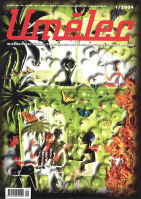


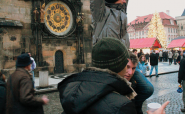
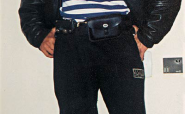
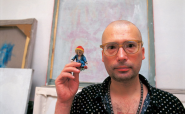
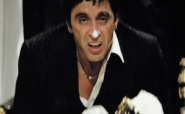
Comments
There are currently no comments.Add new comment